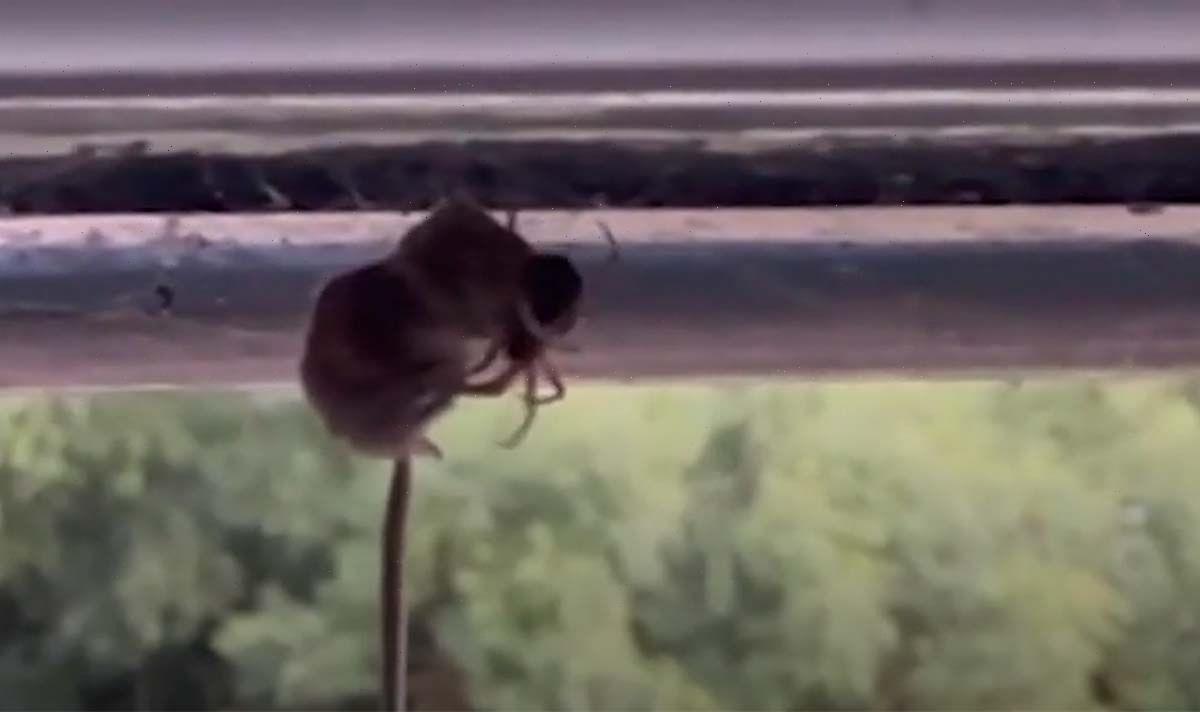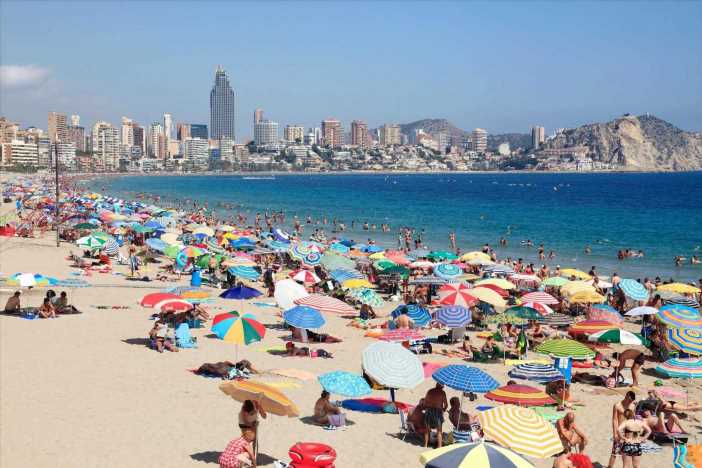Credit:Illustration: Jim Pavlidis
To submit a letter to The Age, email [email protected]. Please include your home address and telephone number. No attachments, please include your letter in the body of the email.
Superannuation
I am tired of hearing the refrain “broken promise” in politics (“Focus on huge super not major change: PM”, 23/2). It is important that governments do their utmost to keep election promises, but circumstances change, knowledge changes and a good government adjusts its thinking and actions to respond to change. The government promised during the election campaign to not change superannuation, but analysis has since revealed the huge cost of superannuation concessions.
In business, it is uncontroversial that new knowledge or new conditions will lead to revised actions.
Surely, governments should have the ability to do the same without the raucous chorus of “broken promise.” Remember during the pandemic, when we were told masks were completely unnecessary – until they became compulsory. The more we know and learn, the more important it is for governments to be able to be flexible.
Louise Kloot, Doncaster
We pay for massive concessions
Re: your editorial: (“Build consensus on super changes”, 23/2) superannuation has only one purpose: to provide funds towards a respectable standard of living after retirement. Massive tax concessions are provided as an incentive for additional contributions above the compulsory employer contribution. The community is a silent partner in every person’s superannuation holding.
It is fair and sensible to limit the amount that an individual can hold in superannuation to $3 million, with a maximum of $2 million in the pension phase. This would provide an annual tax-free distribution of about $150,000, per person, which is very generous. Franking credits in this context are nonsensical and should be phased out over five years.
Peter Barry, Marysville
A form of tax haven
The national superannuation scheme was established by the Keating Labor government to provide a nest egg for hard-working Australians in retirement. It should not be a tax haven for the rich.
Phil Alexander, Eltham
Labor could act on negative gearing
Your correspondent’s comment (Letters, 23/3) that the Coalition should support the abolition of negative gearing is something he should be urging of the Albanese government, since Labor is in government and has the necessary power to do so. However, that is unlikely to happen.
A search of the Register of Members’ Interests of federal politicians reveals that many government members, including the prime minister and members of cabinet, own numerous houses. Many are, no doubt, negatively geared.
Charles Davis, Hawthorn
Mandates not respected
At the last federal election, Labor made clear promises to legislate a 43 per cent emissions target by 2030 and use the LNP’s own mechanism to implement it, to establish a national infrastructure fund and a housing fund. Having won the election, they clearly have a mandate to implement these policies. Unsurprisingly, the Dutton opposition refuses to respect these mandates and is working to ensure that Labor has difficulty in pursuing their election promises. Yet when Labor dares to raise new issues, such as superannuation, the Coalition is out there warning of broken promises and lack of mandates. Likewise, any reconsideration of Morrison’s stage three tax time bomb. Dutton’s tactics recycle Tony Abbott’s destructive opposition stance.
Anthony Albanese and Labor should not be restrained by the opposition’s predictable politicking. The ultimate promise of any good government is to act with integrity and competence in the public interest at all times. If that means changing course or responding to changing context, then so be it. Labor should not be afraid to propose good policy, argue for that policy and implement it. If it is good policy, they will be rewarded in subsequent elections.
Graeme Henchel, Yarra Glen
THE FORUM
War is already escalated
The task today remains exactly the same as it was one year ago – the total defeat of Russia in its merciless war on Ukraine (“Putin accuses West, ‘halts’ nuclear pact”, 23/2). The free world has stepped up by providing billions of dollars in support, but it has done so piecemeal and only after much shilly-shallying around.
This dance of delay is for Ukraine a dance of death. The fears of “escalation” are absurd. What more escalation can there be than the wholesale destruction of Ukraine’s infrastructure and the mass murder of civilians?
The free world needs to give Ukraine everything it needs when it needs it and to remove restrictions on targeting military targets deep inside Russia itself.
Chris Curtis, Hurstbridge
Courage in resistance
Mick Ryan (“Ukraine’s roar has changed the world”, 22/2) rightly lauds the heroic efforts of Great Britain in World War II and in Ukraine today in resisting tyrants. Churchill’s use of the lion’s roar metaphor was truly apt for his nation in wartime and relates to Zelensky’s nation today.
That said, it is not eloquent theatrics of the “St Crispins Day” ilk that finally ensure victory on the battlefield for democratic nations. Without the US’s hardened industrial and military might as an ally, Great Britain would have been imperilled in the 1940s. Ditto the case in Ukraine today. The timing and courage symbolised in Joe Biden’s visit to Kyiv this week could, with appropriate follow-up in concert with NATO nations, elevate him to true historic statesman status.
Jon McMillan, Mount Eliza
Individuals sacrificed
David Livingstone (“Why defence delusions spell danger”, 21/2) offers the opportunity to look beyond the current dominant narrative regarding the preparations for a perceived war with China at some point in the future. Pulitzer Prize winner Chris Hedges, in his book The Greatest Evil is War, describes the absolute demonic instrument that is war. We see this every day between Ukraine and Russia. Political decisions are made and individuals become just numbers, often sacrificed for some insatiable appetite.
Where is a strategic plan to promote peace? Where is a strategic plan to work with other principled countries/voices to promote co-operative co-existence, instead of the voices that promote that war is inevitable.
Judith Morrison, Nunawading
Russians none the wiser
Having watched the ABC’s Foreign Correspondent, it is clear there’s collateral damage inside Russia as a consequence of the war in Ukraine and the sanctions imposed by the West. Those affected include Putin (who has forgotten who started this war), Lavrov and the night-time host Vladimir Solovyov, whose statements about Zelensky and the West have bordered on the irrational.
Sadly the good citizens of Russia are none the wiser, given the tight media censorship imposed by Putin and the Kremlin.
Roger Christiansz, Wheelers Hill
Accepting inequities
Inflation is around 8 per cent and wages growth around 3 per cent (“RBA in the gun after record fall in real pay”, 23/2). Supermarkets enjoy super profits, but families cut back on meals. Private schools receive generous government funding, while some parents struggle to buy books for their children. Investors have multiple dwellings, while homeless numbers are growing.
These and other inequities could be addressed by policy changes, but do governments have the gumption? Andrew Trembath, Blackburn
Who’s paying the price?
Reserve Bank governor Philip Lowe is in the gun because governments leave inflation control solely to him. Handy really. But governments can do stuff too. Tax the very wealthy. Tax extractive industries like Norway does. What about a few price controls? All too hard. Influential people will be upset. Easier to have the poor and the soon-to-be-poor carry the burden.
What kind of Labor government is this? Where’s the compassionate, ever-so-slightly-socialist approach? What’s happened to Keynesian economics? What a pity Shorten didn’t win the previous election; all those progressive programs abandoned.
Murray Hall, Dunolly
PM déjà vu
Is Anthony Albanese just Morrison-lite? Consider his immediate adoption of AUKUS with its mind-boggling expense and its threat to Australian military autonomy. His acceptance of the stage 3 tax cuts. And also his giving permission to Santos to drill 116 coal seam gas wells in Queensland. Will the government still be able to reach its already inadequate 43 per cent emissions target?
John Biggs, Mt Nelson, Tas
Risk in outsiders
The Liberal candidate for Aston, Roshena Campbell, says the fact she doesn’t reside in the electorate she’s contesting won’t count against her because she’ll be door-knocking heavily and listening to electors’ concerns. While such activities are important in any campaign, the ability to genuinely relate to voters and show you really care is of greater importance.
As a councillor for the City of Melbourne for two years, one might judge that her interests and focus are not on the outer suburbs but rather that she sees this as an opportunity to enter federal parliament after unsuccessfully seeking pre-selection for the seat of Casey last year.
Should she fail to win Aston, where will she look to next? As Kristina Keneally discovered when she unsuccessfully contested the then Labor seat of Fowler at last year’s federal election, being parachuted into an electorate from elsewhere is a fraught tactic.
Kevin Bailey, Croydon
Some votes worth more
Labor MP Sonja Terpstra — responding to a Greens motion for a review of the upper house voting system – said “the motion … merely showed the Greens wanted more seats”. (“Election-preference harvesting under scrutiny”, 23/2). I guess such red herrings are the only way to defend the indefensible – namely, that some voters for a House that is supposed to be proportionately representational often end up grossly over-represented at the expense of other voters.
In 2018, for instance, while upper house members averaged 89,587 votes each, the 331,479 votes for Greens candidates secured the election of only one of them. Yet eight members from “preference-harvesting” parties were elected on the strength of an aggregate 472,376 votes at an average of 59,047 votes each.
Colin Smith, Glen Waverley
Information lacking
I have lived in Australia for 43 years and never managed to quite understand how the upper house is selected. At the last state election there were 54 candidates on our ballot paper. I had heard of just one of them, Fiona Patten.
It seems strange we are given no information before election day – what electorate we are in, who the candidates are, how the absurd preferential voting systems work, what the candidates believe.
It should be compulsory for all candidates at least to do a mail drop stating their policies and plans if elected. If they can’t be bothered to do that, they shouldn’t stand.
Peter Valder, Toorak
Cheaper solution
They do not need a $757 million stadium in Hobart (“Albanese government considering funding Hobart stadium”, 23/2). They already have stadiums in Launceston and Hobart. Both cities have large numbers of AFL followers. Minor upgrades to the two grounds would be required. Play half the games in Hobart and the other half in Launceston and they would have bigger crowds than Gold Coast and Western Sydney, combined, from day one.
Peter Gustavsen, Brighton
Commuter pain index
Peter Lowndes, (Comment, 22/2) I share your sentiment related to the CPI (commuter pain index) when travelling on the Westgate and Princes freeways. Every time I pass the signage “Save 20 minutes” along the never-ending sections of concrete barriers along these major arterial roads, I can’t help thinking when exactly these 20 minutes saved will eventuate. Will they equal the hours I’ve been stuck in traffic?
Meanwhile, the “Big Build” goes on and on. My CPI increases daily.
Caryn Auld, Point Cook
Shoey history
As always, the young think they invented everything. The article about Harry Styles “doing a shoey” reports that the act “took off in the 2000s”. When I was a student at Melbourne University in 1982, one of the other students had earned the moniker “Ricky Red Shoes” by sculling beer from his red tennis shoes after winning a match.
When his younger brother arrived at college he was promptly christened “Brucey Blue Shoes” although I don’t remember him ever emulating his brother. Let’s just agree that “doing a shoey” was a thing long before the 2000s.
Jackie O’Neal, Kew
Journey via book
Your editorial refers to Roald Dahl’s much loved Matilda reading books “to travel the world via the extraordinary vehicle that is a book” (“Editing books of the past is not the answer”, 22/2).
From my classroom experience this term in an Aboriginal boarding school in Alice Springs, I can report that Dahl’s Matilda travels seamlessly across cultures in this country too.
My hope is that my students will dive into other stories from the great storyteller. Why not?
Nick Toovey, Alice Springs
Editing required
Look out, Lynley Dodds. Very soon Hairy Maclary won’t have any playmates left. Hercules Morse and Schnitzel Von Krumm (height shaming). Bottomley Potts (skin conditions). Muffin MacLay (obesity). Bitzer Moroney (eating disorder).
Anthony Clifford, Wendouree
And another thing
Credit:Illustration: Matt Golding
Pollie speak
Coalition candidate Roshena Campbell shows she is a ready-made politician. When asked her position on human-induced climate change she replied: “I don’t want to see our kids struggling for jobs.”
Peter Randles, Pascoe Vale South
At 38 years young the Lib’s Aston hopeful Roshena Campbell is highly likely to see our kids struggling with global heating.
Jenny Smithers, Ashburton
The Voice vote
Is the professed need for “more information” turning into a convenient excuse for voting no in the Voice referendum?
Bernd Rieve, Brighton
I will be voting yes for many positive reasons – and also, because I don’t know how I could ever explain a no vote to my grandkids.
Stelvio Vido, Kew East
Books
A quick search revealed hundreds of quotes in the Bible where only men are permitted to rule and to lead, and women must be subservient. I don’t think a few tweaks would bring that book up to date with today’s understanding of equality. So how can we rectify that?
Judy Kevill, Ringwood
I devoured historical fiction novels as a teenager. If you don’t know the past you’ll repeat the same mistakes. Leave books “as written”.
Tasma Wischer, Hawthorn
Better unexpurgated Roald Dahl than some of the Brothers Grimm stories. The language may be acceptable but some of those stories are the stuff of nightmares.
Les Aisen, Elsternwick
Furthermore
Novak Djokovic is seeking a vaccine exemption to enter Indian Wells in the US, saying “It’s out of my hands”. No mate, it’s in your arm!
Russ Davis, Camperdown
I thought the local doctor was there for when you are sick. So who are all these people who know so far in advance of their illness that I have to wait three weeks for an appointment?
Vivienne Whitehead, Paynesville
Patrick Elligett sends an exclusive newsletter to subscribers each week. Sign up to receive his Note from the Editor.
Most Viewed in National
From our partners
Source: Read Full Article




